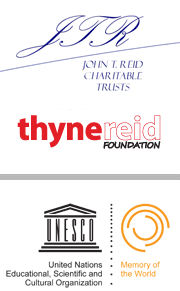Artists of the First Fleet
A lasting outcome of the arrival of the First Fleet was the artwork produced from the earliest days of settlement. These drawings depict Indigenous people and the Australian environment at the point of colonisation in 1788.
Many of the artists from the First Fleet were naval officers, such as William Bradley and George Raper, whose formal training included sketching and watercolour painting. Some artists remain unknown and may have included convicts.
The State Library collection includes over 370 drawings and illustrations dating from the early years of the colony, including over 100 works by an artist, or artists, identified only as the Sydney Bird painter.
Further collections of artworks include:
These drawings of Australian flora and fauna, some dated 1797, were owned by English botanist, Richard Pulteney. The artist is not known and the works may have been created in England.
This album of watercolour drawings of Australian natural history was owned by Robert Anderson Seton and dates from around 1800. The album is comprised of copies of sketches from Governor John Hunter's sketchbook, 'Birds & Flowers of New South Wales drawn on the spot in 1788, 89 and 90'.
Surgeon on the Lady Penryhn, Bowes Smyth’s journal contains 25 watercolour and pen and ink drawings. His drawings include the earliest extant illustration by a European of the emu. The earliest was possibly drawn by Lieutenant John Watts, also of the Lady Penrhyn, and was reproduced in Arthur Phillip's published account of the First Fleet. Watts’ original drawing is now lost.
A series of five watercolour drawings of Indigenous people have been attributed to naval officer and future Governor, Philip Gidley King. It is known that King sketched but no signed works by him are known to exist.
> See also a selection of First Fleet era natural history drawings from the Derby collection




